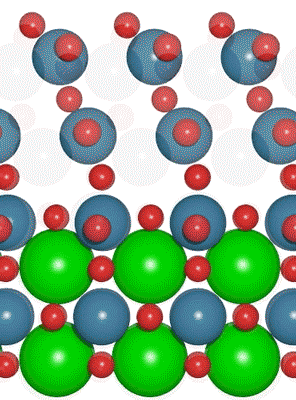 An interdisciplinary team made up of researchers from Stanford University and the U.S. Department of Energy’s SLAC National Accelerator Laboratory recently developed a new catalyst that carries out a solar-powered reaction 100 times faster than ever before.
An interdisciplinary team made up of researchers from Stanford University and the U.S. Department of Energy’s SLAC National Accelerator Laboratory recently developed a new catalyst that carries out a solar-powered reaction 100 times faster than ever before.
Additionally, the catalyst’s performance improves as time goes on and it can stand up to intense, acidic conditions. In creating the catalyst, the researchers used less iridium than would typically be used, potentially lowering the cost to produce hydrogen or carbon-based fuels that could power a range of renewable, sustainable alternatives.
This from SLAC National Accelerator Laboratory:
The discovery of the catalyst – a very thin film of iridium oxide layered on top of strontium iridium oxide – was the result of an extensive search by three groups of experts for a more efficient way to accelerate the oxygen evolution reaction, or OER, which is half of a two-step process for splitting water with sunlight.
“The OER has been a real bottleneck, particularly in acidic conditions,” says Thomas Jaramillo, former ECS member and co-author of the study. “The only reasonably active catalysts we know that can survive those harsh conditions are based on iridium, which is one of the rarest metals on Earth. If we want to bring down the cost of such a pathway for making fuels from renewable sources and carry it out on a much larger scale, we need to develop catalyst materials that are more active and that use little or no iridium.”
The catalyst far exceeded the researchers’ expectations. While the new catalyst is 100 times more efficient at promoting OER than any other catalyst known to date, the researchers are still not sure why. However, the team will continue to examine what caused this boost and continue to limit the use of iridium.
“To make a commercially viable catalyst we will need to reduce the amount of iridium in the material even more,” said Jens Nørskov, ECS member and co-author of the study. “But there are many possibilities, and this gives us some very good leads.”

